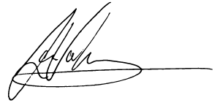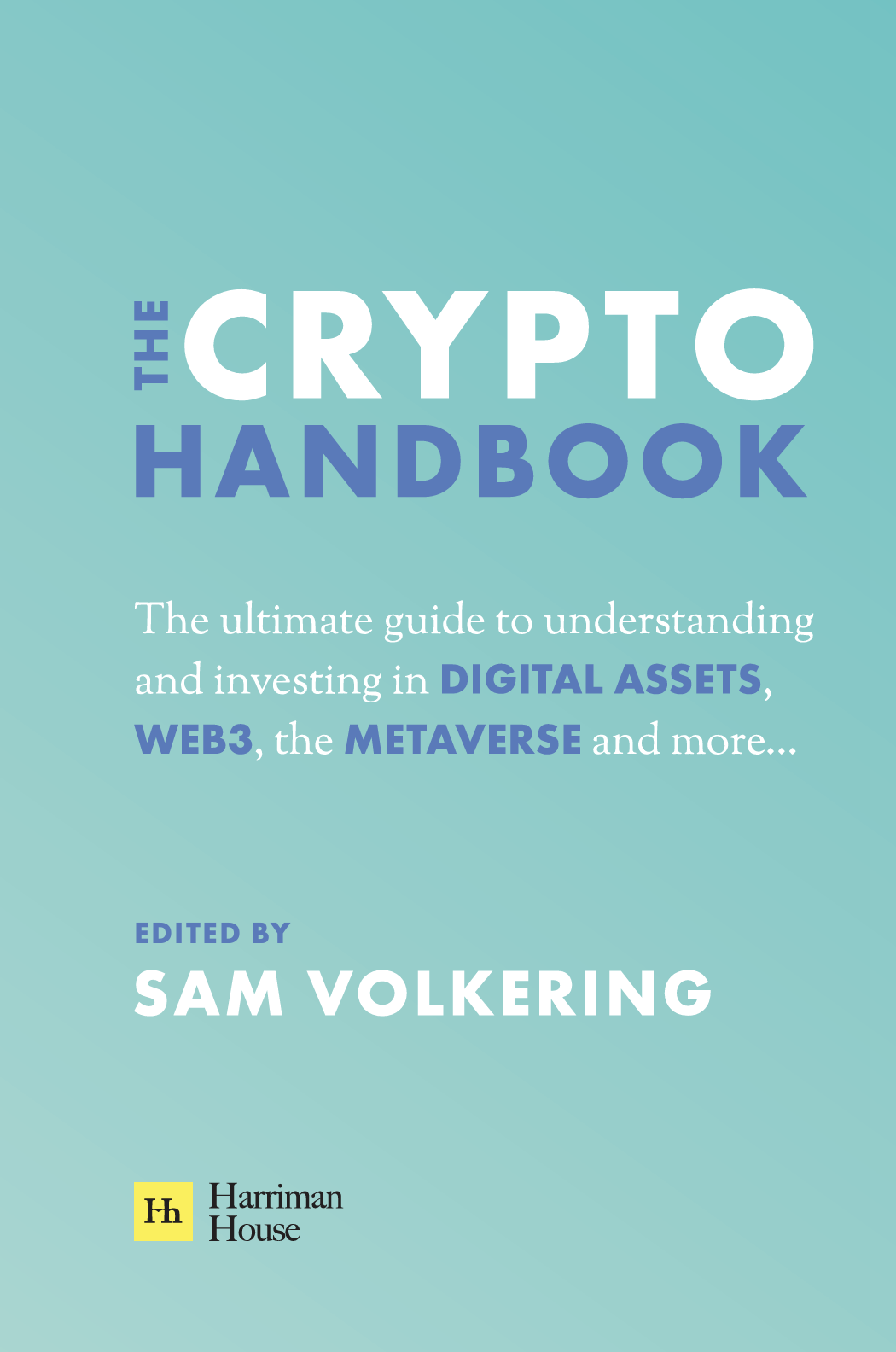Part 2 of our top-to-bottom Buy List review
20th October 2022 |
This week, as promised, we’re continuing our review of the Frontier Tech Investor Buy List.
Given current market conditions, we hope this will serve as a reminder of the positive, long-term credentials of each company included in the list, and of why you shouldn’t be thinking about hitting the Sell button any time soon.
You can find the original recommendation and our active recommendation with each stock below.
Gfinity (LSE: GFIN)
Gfinity operates esports technology and tournaments. “Esports” is another term for virtual, competitive gaming, and is one of the industry’s hottest trends.
Progress for Gfinity has slowed this year, with the easing of lockdowns allowing consumers to seek other forms of entertainment.
Nevertheless, we remain positive toward the company, which is still chosen by global brands such as Nintendo and Coca-Cola Hellenic Bottling Company to deliver esports solutions.
Gfinity also hosted its household Formula One Esports Series Pro Championship in September 2022. In 2021, the tournament broke viewer records, with viewing figures increasing 103% on the previous year.
For H2 2021, the company recorded revenues of £3.3 million, up 8% on H2 2020. Operating losses increased from £1.29 million to £1.57 million.
We’re aware that Gfinity currently bears a loss of 64.93% in the portfolio. Market sentiment has weighed heavily on several tech stocks since late 2021.
That said, we remain confident that the company’s strong commercial activity and the rising popularity of esports will push its share price higher in future.
We reiterate our HOLD recommendation on the stock. You can find the original recommendation here.
HydrogenOne Capital Growth (LSE: HGEN)
HydrogenOne is an investment fund that invests in a mixture of private and publicly listed hydrogen companies.
Hydrogen is increasingly viewed by policymakers as the means to create a greener and more secure future for energy against the current backdrop of geopolitical conflict. In fact, it is estimated that clean hydrogen demand could increase more than 200 times between 2019 and 2030.
HydrogenOne has its finger on the pulse when it comes to picking high-potential hydrogen companies to which investors could not otherwise be exposed.
For instance, Sunfire GmbH is a leading provider of electrolysers, and makes up more than 16% of HydrogenOne’s total fund.
The UK government has also launched the Net Zero Hydrogen Fund, which will allocate around £240 million to low-carbon hydrogen projects. The companies driving this will be an integral part of the HydrogenOne fund long into the future.
With this in mind, we are confident that HydrogenOne will be able to deliver value to shareholders.
We reiterate our BUY recommendation on the stock. You can find the original recommendation here.
Ilika (LSE: IKA)
Ilika produces solid-state battery technology and targets the industrial internet of things (IoT), medical, consumer electronics and electric vehicle (EV) industries.
We view Ilika as key in the transition toward clean energy alternatives.
The company’s batteries set the industry standard, and provide charging rates up to six times faster than those of conventional lithium-ion batteries.
There are two products. The first is the Stereax battery, which is optimised for energy and electronic applications. Last year, Ilika announced the opening of its Stereax manufacturing facility.
Then there’s the Goliath battery, optimised for the EV market. In September, Ilika began its first manufacturing trials for the Goliath, with funding from government agency Innovate UK.
The company plans to move to a Goliath battery-producing facility in 2024, ahead of commercial production in 2025. It also has development agreements with major car manufacturers such as Honda and McLaren.
Commercially speaking, it’s early days for Ilika. For the year ended 30 April 2022, the company recorded revenues of £0.5 million, down from £2.3 million in the previous year. It also posted an adjusted loss of £6.4 million against a loss of £2.3 million in the previous year.
We’re expecting to see an improvement in these figures as the battery range is marketed.
We reiterate our BUY recommendation on the stock. You can find the original recommendation here.
Immotion Group (LSE: IMMO)
Immotion provides virtual reality (VR) simulations for tourist attractions.
The company has enjoyed a fruitful trading period, with footfall once again returning to its installation locations as lockdowns have eased.
For H1 2022, revenues totalled £4.4 million. This is a healthy 91% increase on the figure reported for H1 2021.
In part, the solid progress has been driven by the deployment of its new “Gorilla Trek” solution at three major zoos, including Chester Zoo here in the UK. Gorilla Trek is an immersive VR experience which allows zoogoers to interact with gorillas in the Rwandan rainforest.
Immotion also introduced a home-based entertainment (HBE) offering at the end of last year to bring in additional revenue streams. HBE included the “Let’s Explore Oceans” VR solution, where users could virtually swim with marine life with a VR headset.
In its 30 September 2022 update, Immotion confirmed that it had received a £250,000 investment from a “third party” into the HBE operation for 51% of the business. In addition, the company said that it will dispose of Uvisian (a useful contributor to the business during lockdowns) for £100,000.
We view these moves as a positive, as they will allow the company to focus on its location-based entertainment. This has been the driving force behind its growth and is, in our view, the most significant part of the business moving forward.
We reiterate our BUY recommendation on the stock. You can find the original recommendation here.
IQE (LSE: IQE)
IQE provides semiconductor parts.
Semiconductors have been a hot topic in the financial markets over the past two years, with shortages threatening to constrain the development of a wide variety of other industries.
Nevertheless, IQE remains resilient and continues to serve several key markets. This includes 5G, IoT, autonomous vehicles and the metaverse.
In particular, IQE announced a supply agreement with technology company Lumentum in June. Based on the deal, IQE will provide semiconductor parts used for sensory “LiDAR” products optimised for autonomous vehicles.
IQE’s H1 2022 revenues were £86.2 million, up 8% on H1 2021. Yet it reported an operating loss of £7.4 million in H1 2022, close to a four-fold increase on the loss recorded in H1 2021.
Aside from the macroeconomic climate, IQE puts these losses down to a closure of its Singapore site in June 2022. We nevertheless remain confident that the company will deliver invaluable semiconductor solutions to the industries of tomorrow.
Furthermore, we believe that movements in the semiconductor space will lead countries around the world to protect the security of semiconductor supply, in much the same way as energy security.
We will expand further on this bigger idea around national “semiconductor security” in the coming week.
For now, IQE remains a HOLD. You can find the original recommendation here.
Kanabo Group (LSE: KNB)
Kanabo produces cannabis-derived products for medical patients and wellness customers.
Originally a provider of cannabinoid (CBD) products, the company has since expanded into a multi-faceted wellness company.
In H1 2022, Kanabo acquired one of the UK’s leading telehealth providers, The GP Service (GPS) for £13.5 million.
The integration with GPS will allow customers to obtain virtual access to medical professionals, receive medicinal cannabis subscriptions, and gain first-hand access to Kanabo’s CBD products.
This is an exciting development, and shows the company’s commitment to expanding into telehealth, which we consider to be an area of opportunity with huge long-term potential.
The GPS deal has been the driving force behind Kanabo’s recent impressive financial figures. H1 revenues totalled £0.24 million, a healthy increase from the £0.02 million reported in H1 2021. Kanabo also bolstered its cash position, which rose from £4.48 million to £4.96 million across the two periods.
Finally, you may recall that Kanabo had a proposed agreement with Materia. This has fallen through, and, while not ideal, the situation certainly doesn’t sound the death knell for the company. Kanabo continues to cultivate cannabis products through its Kanabo Agritec subsidiary, and we expect its new telehealth venture to generate strong revenue streams.
However, the large fall in Kanabo’s share price is concerning. Even chairman David Tsur has stated that he is extremely disappointed with the share price.
We attribute the decline to a waning appetite for growth stocks in the current climate, and to Kanabo changing its business model during these times.
That said, we still see long-term potential for Kanabo, particularly as cannabis moves through the barriers of legalisation. Recently, we saw United States President Joe Biden pardon thousands of cannabis-related convictions, which gives you an idea of the growing acceptance around it. Cannabis is not just for medicinal use but also, beyond that, for consumer-facing markets.
With a change of model, and enduring uncertainty from the market, we think that it’s prudent for the time being to move the stock to a HOLD. You can find the original recommendation here.
HANetf ETC Group Digital Assets and Blockchain Equity UCITS ETF (LSE: KOIP)
The KOIP exchange-traded fund (ETF) is an investment fund that tracks the Solactive ETC Group Digital Assets and Blockchain Index, comprised of 30 blockchain-centric stocks. It even includes crypto exchange giant Coinbase (NASDAQ: COIN) and payments giant Block Inc. (NYSE: SQ).
The ETF fund provides an exciting route into the crypto market. It gives easy, direct exposure to a variety of crypto assets that would otherwise be difficult to access. Current exposure to the crypto market largely means investing overseas, which brings bureaucratic and regulatory challenges.
The fund is ever evolving, and is adjusted on a quarterly basis as it seeks to include the latest crypto-centric companies (i.e. those that generate a significant portion of their revenues from the blockchain industry).
As new crypto-focused stocks hit the markets, we may find new companies entering the KOIP fund. This means the fund will keep pace with the larger crypto pure plays and grow in line with our high expectations of the crypto market.
Of course, much of the progress of the fund will be reliant on the success of the wider crypto market. So it’s not surprising to see that its downward trajectory has coincided with the crypto bear market that’s setting in.
The risk-off sentiment does little to change our conviction towards the crypto market.
We view crypto as an unstoppable trend that will continue to transform our personal and financial lives well into the future. Its adoption at retail, corporate and sovereign levels demonstrates just how viable it is. It’s very easy to lose sight of that during times like these.
We reiterate our BUY recommendation. You can find the original recommendation here.
Mirriad Advertising (LSE: MIRI)
Mirriad is a video technology company that dynamically inserts adverts into content after it has been produced.
The company has had a tough year due to headwinds in China, one of its main target markets.
Revenues for H1 2022 came in at £577,000, less than half of the £1.37 million figure recorded for H1 2021. Across the two periods, China revenues were down 85%, as the Chinese market grappled with fresh lockdown restrictions.
The company has nevertheless had some good news.
Revenues recorded for the United States in H1 22 were up 57% on the same period in 2021, with this country now accounting for 72% of total revenues.
We believe that the United States could be the main source of growth for Mirriad. As per our 2 June 2022 update, several technology companies there are seeking ways to incorporate adverts into content at a time where cost bases are being squeezed.
Mirriad provides a means of doing this without alienating viewership, which is one of its key competitive advantages.
However, we’re aware that difficult times still lie ahead for Mirriad. With this in mind, the company is a HOLD. You can find the original recommendation here.
Mode Global Holdings (LSE: MODE)
Mode is a payments ecosystem which allows users to pay with and manage digital currencies such as bitcoin.
Mode has been caught in the swathe of negative sentiment towards the crypto market this year. Being a young, crypto-centric company, its fall in price along with the crypto markets has been crushing.
However, in a commercial sense, Mode is continuing to progress, and “build” (which is crypto speak for develop and innovate) in this so-called “crypto winter”.
This year, Mode partnered with e-commerce firm Heroes, allowing its customers to take salaries in bitcoin.
Mode also launched a new bitcoin cashback product, allowing its customers to receive bitcoin as they shop.
Mode’s H1 2022 revenues are down 34% on H1 2021, currently standing at £0.5 million. This is not surprising, given the current crypto winter. It’s worth noting that this isn’t the first crypto winter, but the third that we’ve experienced: accordingly, we remain confident that when the crypto markets turn higher, Mode will follow.
Mode’s user base has also remained resilient despite the market turmoil. It currently stands at 401,388. Again when the crypto markets flourish again, we expect this to explode.
We reiterate our BUY recommendation on the stock. You can find the original recommendation here.
MPAC Group (LSE: MPAC)
MPAC is a provider of sustainable packaging and automation solutions.
MPAC continues to assist product lines for the leading industries of tomorrow.
In September, MPAC signed a three-year contract with lithium battery producer FREYR Battery. In the deal, MPAC will provide automated assembly equipment to FREYR’s gigafactory in Norway.
MPAC continues to ensure it provides sustainable packaging options. For example, the company uses bagasse in some of its packaging. Bagasse is sugarcane pulp which can be optimised for food packaging. It is a sustainable alternative to plastic packaging.
What’s more, given the introduction of the UK-wide Plastic Packaging Tax on 1 April 2022, we believe that MPAC’s packaging will set the industry standard in a more sustainable world.
Under the terms, the tax will apply to any plastic packaging that is manufactured or imported into the UK, which is comprised of less than 30% recycled plastic.
Despite this, MPAC has had a tough year.
Although its H1 2022 revenues are up 14% on H1 2021, the company has moved into a loss from a profit. Its current losses for H1 2022 stand at £0.4 million, down from a profit of £2.8 million in H1 2021.
We acknowledge this, but remain confident in MPAC’s long-term ability to provide packaging and automation solutions to world-changing industries.
We reiterate our BUY recommendation on the stock. You can find the original recommendation here.
Sam Volkering
Editor, Frontier Tech Investor

Elliott Playle
Analyst, Frontier Tech Investor



